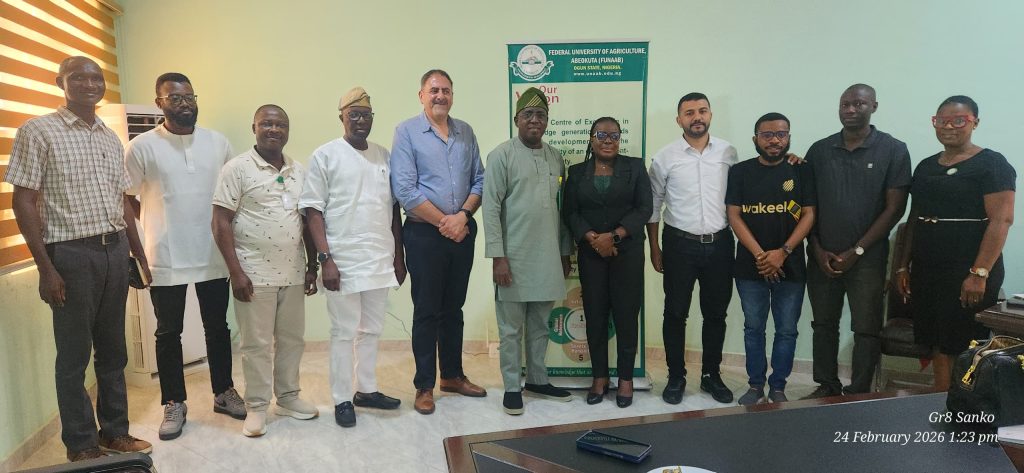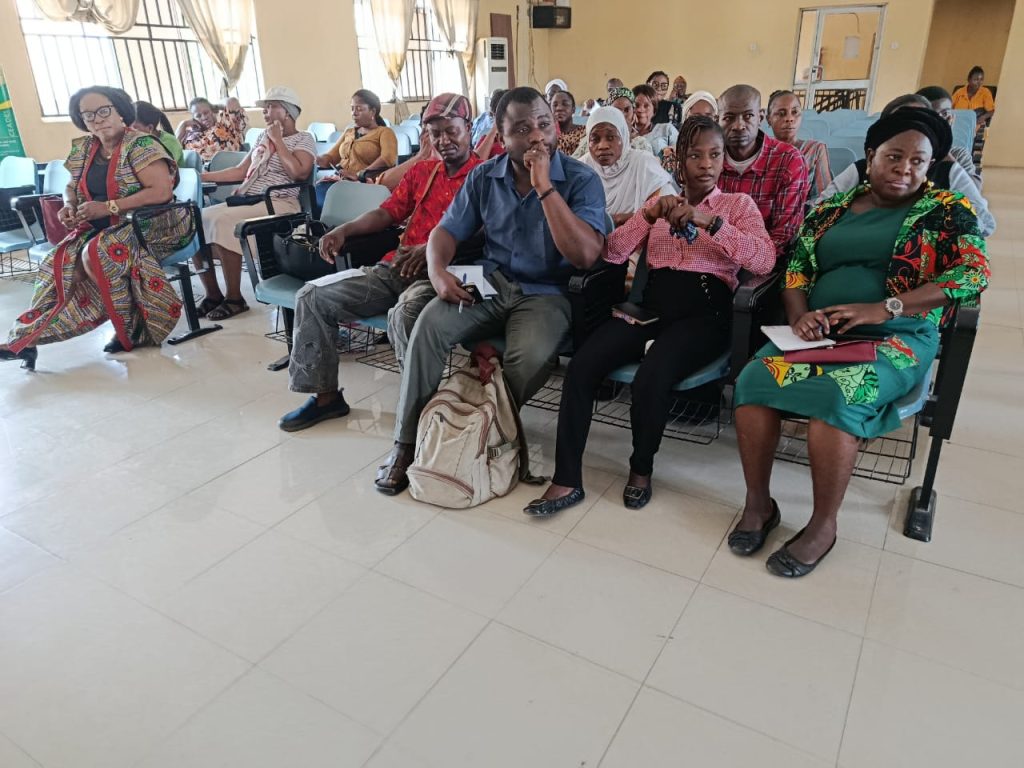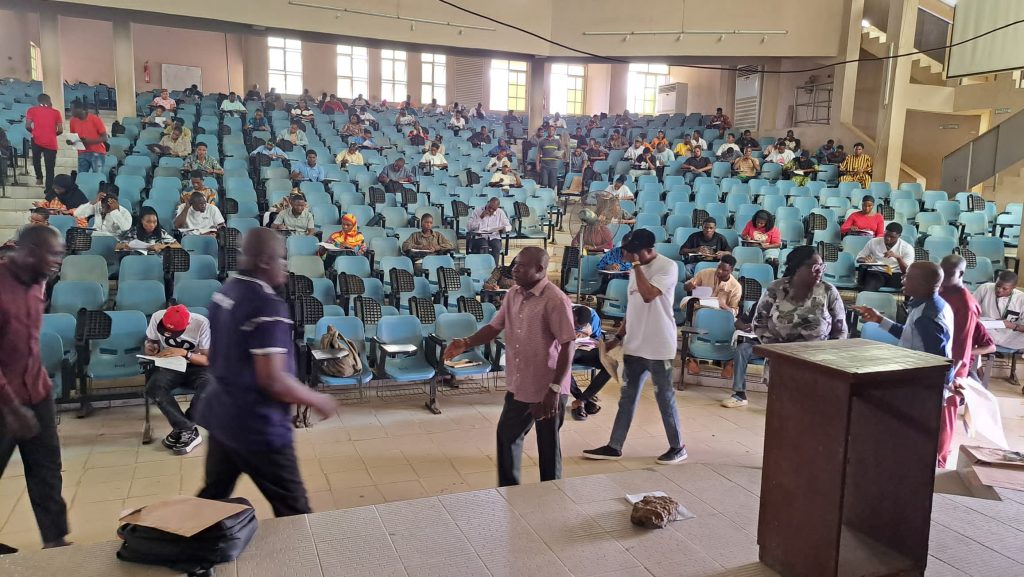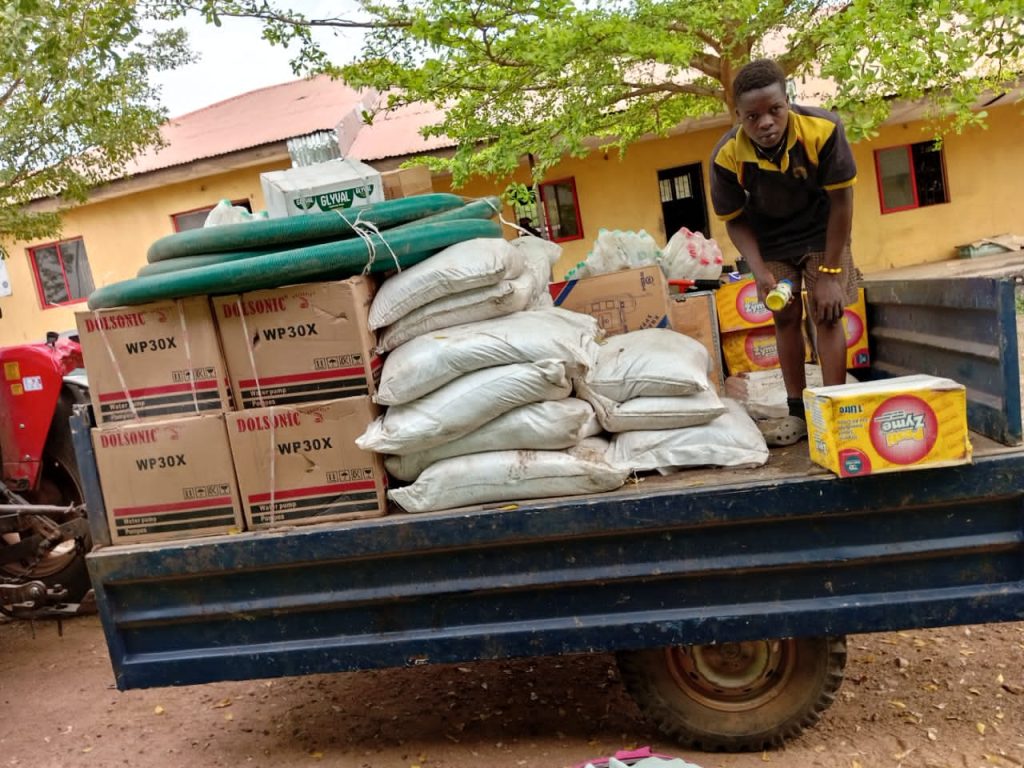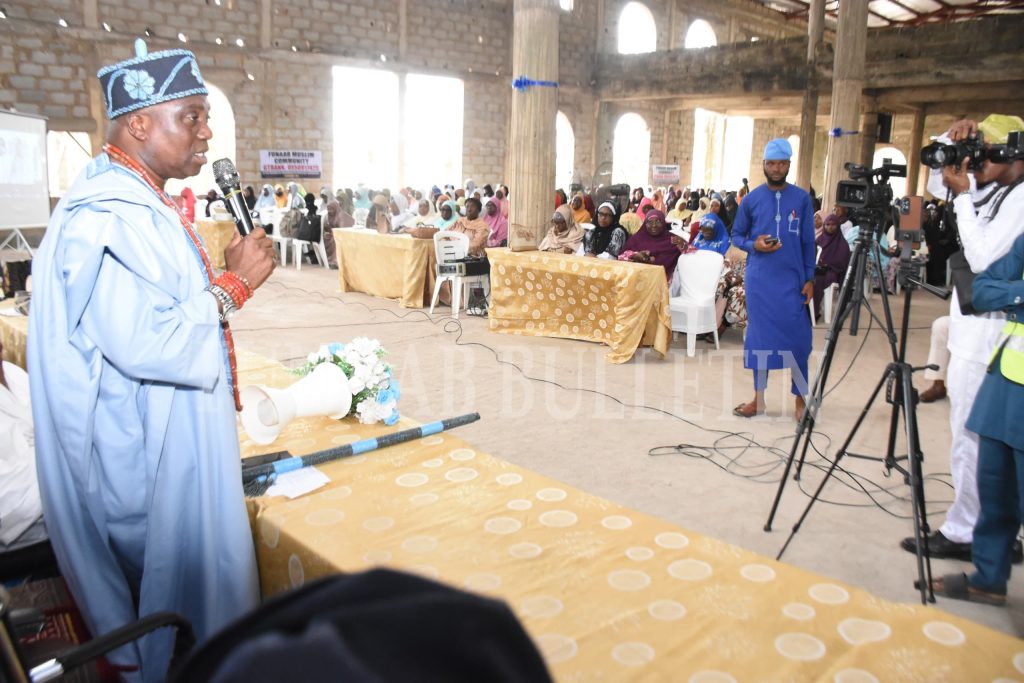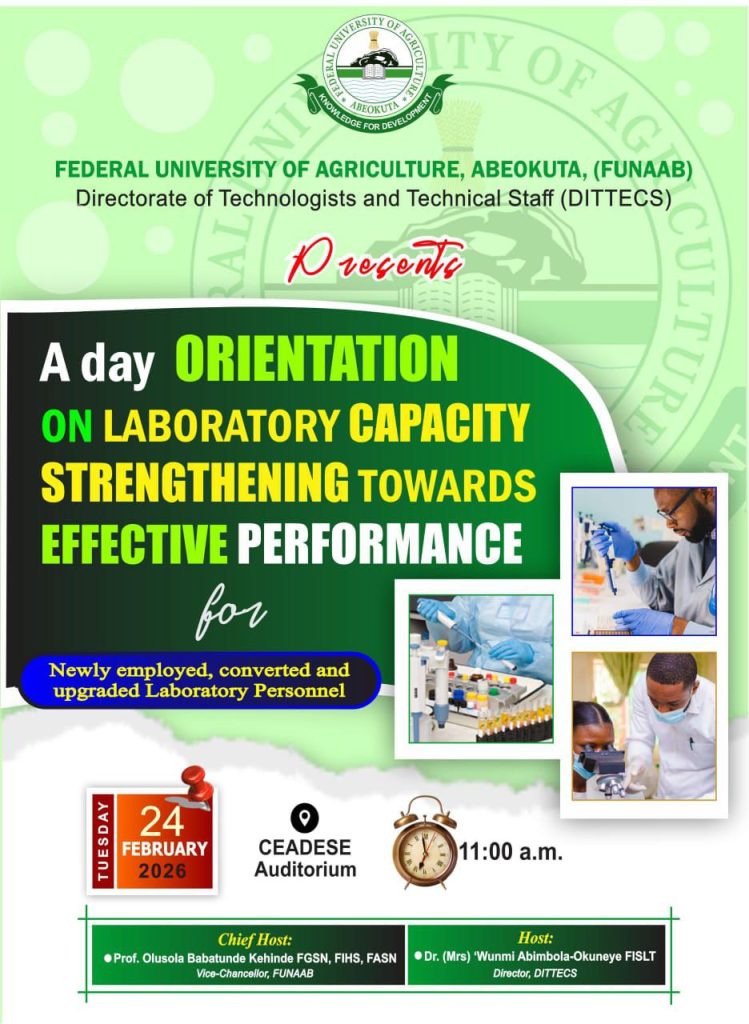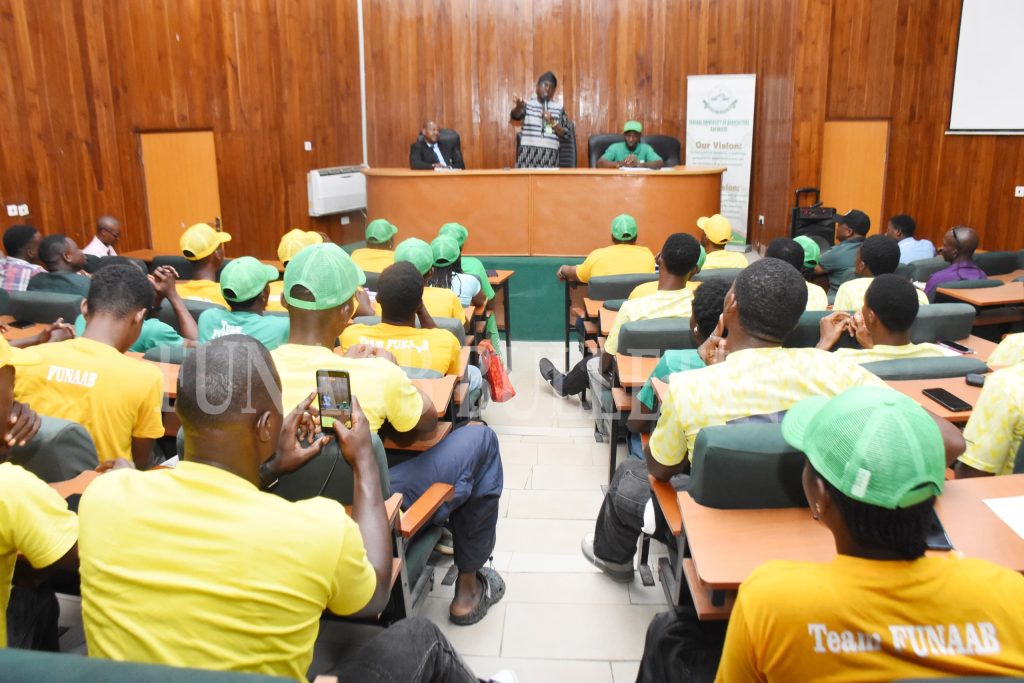Last Updated on June 11, 2020 by FUNAAB
The University Management, led by the Vice-Chancellor, Prof. Kolawole Salako, in company of Principal Officers, have inspected projects at their various stages of completion within the University. The project sites inspected included the College of Animal Sciences and Livestock Production (COLANIM) Building Phase II, Agricultural Farm Laboratory Complex, 250-Seater Capacity Lecture Theatre, College of Engineering (COLENG) Departmental Building, Library Extension Phase I, Iyalode Tinubu Hall (Hostel) refurbishment, Needs Assessment Male Hostel III, and FUNAAB Universal Conservices (FUCONS) Limited Building.

Others include maintenance work in the College of Physical Science (COLPHYS), College of Biosciences (COLBIOS), installation of fiber optic cables for Internet services in the Colleges and other locations, Centre of Excellence in Agricultural Development and Sustainable Environment (CEADESE) Central laboratory, Maternity building, X-ray Building at the University Health Centre, and four comfort stations that had been delivered to the University. According to the Vice-Chancellor, “We had to carry along critical stakeholders within the campus to see why Management should not be distracted but focused in the interest of the University. In spite of the lockdown, we were focused by using the minimum money that we could get to maximize developmental activities”. Prof. Salako revealed that the lockdown was meant to prevent the spread of COVID-19, noting that government did not say that the country should be completely locked down.
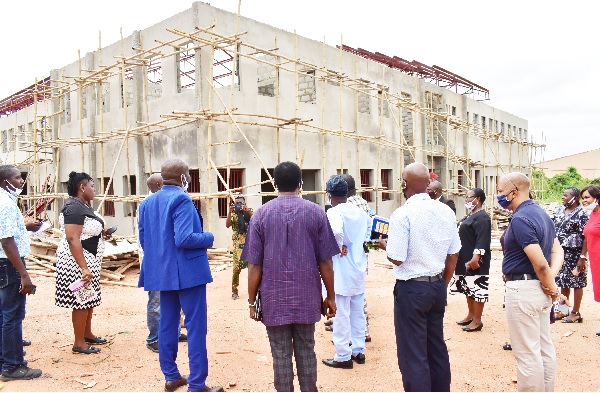
“Government did not say that we should lockdown the country, it did not say that we should lockdown the institutions 100 percent. If we actually lockdown 100 percent, the day we come back to work what will we meet on ground?”, he stated. The Vice- Chancellor emphasised that “One other thing we should know is that if we decide to paralyse all activities, the institution will not be visible enough worldwide and the University is not a place where you can afford just not to be seen worldwide”, adding that universities were operating in advanced countries and there was an alternative arrangement for people to work from home. He stated that, alongside Principal Officers, he had been working online and treating mails from academic and non-teaching staff.

“Lockdown or no lockdown, the University was functional. I worked online. I wrote recommendations for academic staff and supported their applications. So, the issue of lockdown being seen as an opportunity not to do anything at all should not arise. In many cases, go and check what happened in some private sectors, you lockdown, you lock your job up. You lock the organisation down, then you lock up the job and we are seeing the effect of that. It is always in government establishments that you can say okay, lockdown collect your salary and sleep off. I could not afford to do that. We were not actually engaged in full-fledged activities but skeletal work was going on. We were getting documents signed by agencies in Abuja. We were in contact and working through the Internet, sending and receiving e-mails, WhatsApp and other platforms where we could hold meetings. To me, the lockdown was not a rest period but an active period for the development of the University. Apart from the national issues, we were also engaged with international organisations during the lockdown”, he added. The Vice-Chancellor lauded the Federal Government for funding universities through the Tertiary Education Trust Fund (TETFund), Needs Assessment, Government Capital Funds and other funding bodies.
He disclosed that the University had installed over 100 solar panels but had to stop because of the lockdown, explaining that solar energy would complement electricity generated through the generator. Prof. Salako said the solar panels were effectively distributed to cover the school environment, FUNAAB Staff School, FUNAAB International School (FUNIS), Institute of Food Security, Environmental Resources and Agricultural Research (IFSERAR) and hostels, among others and that more projects were being worked on such as roads infrastructure, laboratory equipment, farm machineries and water supply. The Vice-Chancellor used the occasion to call on all stakeholders to cooperate with Management for the good and development of the University.


